In December, we acknowledge the International Day for People with Disabilities, the National Day of Remembrance and Action on Violence Against Women, Bodhi Day, Human Rights Day, Hanukkah, Shab-e-Yalda, Christmas and Kwanzaa.
Below, read more about each date of significance, written by members of our Inclusivity, Diversity, Equity and Accessibility (IDEA) Committee.
International Day for People with Disabilities: December 3
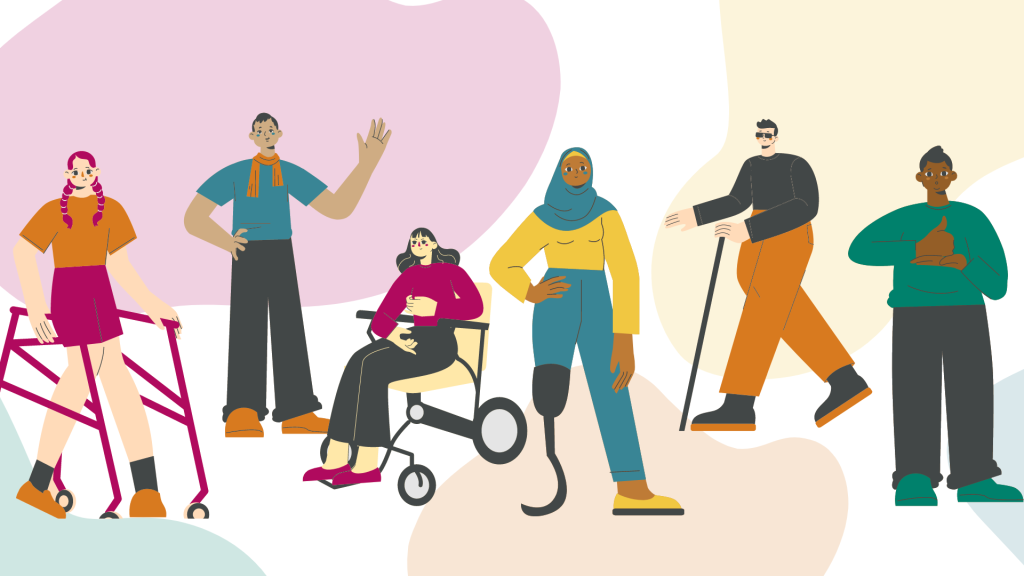
The International Day for People with Disabilities is observed each year to promote understanding of disability issues and to support the dignity, rights and well-being of people with disabilities around the world. The day raises awareness of the barriers that limit full participation in society and highlights the importance of accessibility, inclusion and equity in all communities. It also serves as a global call to action that encourages individuals, organizations and governments to work toward creating environments where people with disabilities can thrive and contribute without limitation.
National Day of Remembrance and Action on Violence Against Women: December 6
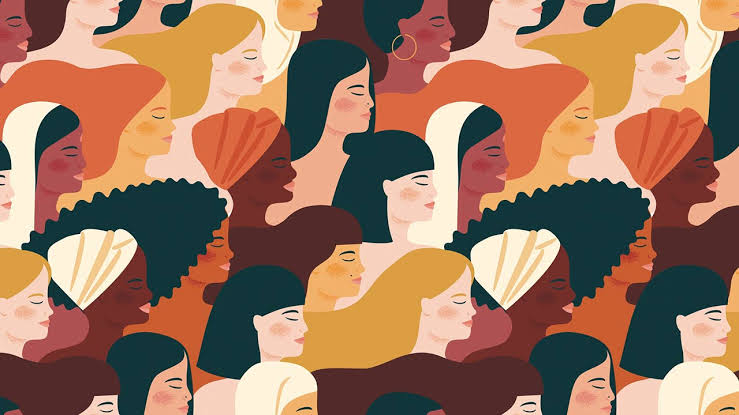
December 6 marks the National Day of Remembrance and Action on Violence Against Women, a time to honour the lives of women and girls who have been harmed or killed because of gender-based violence. The day calls on Canadians to reflect on the devastating impact of this violence, support survivors and recognize the urgent need for continued action to build safer communities. It also serves as a national reminder to challenge harmful attitudes, address systemic inequalities and commit to meaningful change that helps prevent violence against women.
Bodhi Day: December 8
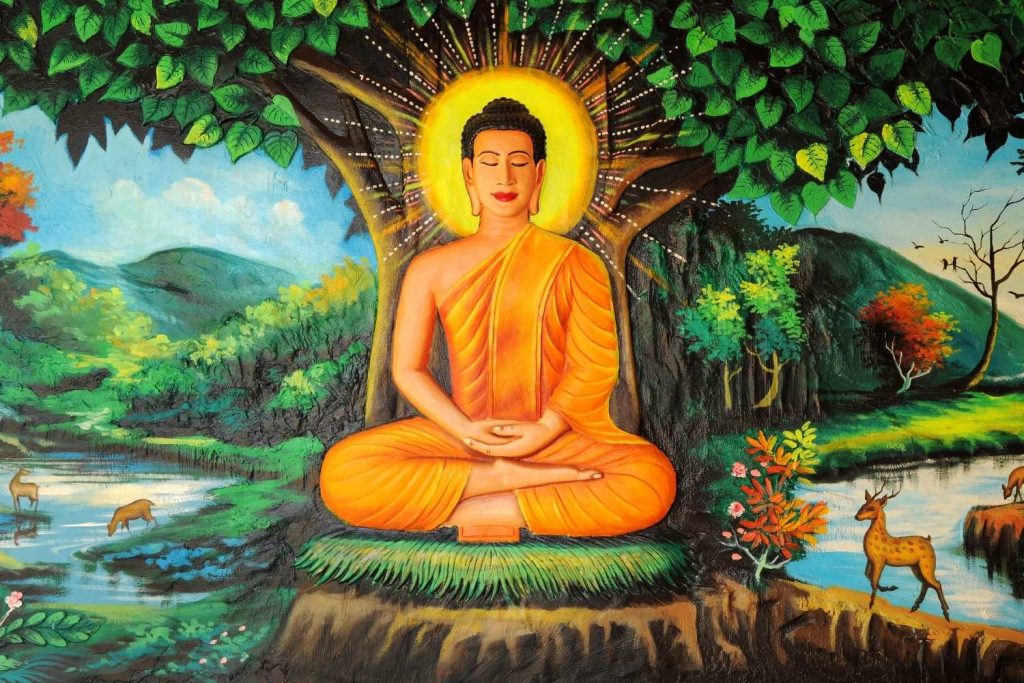
December 8 marks Bodhi Day, which commemorates the enlightenment of Siddhartha Gautama after years of spiritual seeking that revealed the nature of suffering, the cycle of rebirth and the path to liberation. The date varies across regions, with some Buddhist communities observing the occasion at different times of the year. The day is often marked with meditation, acts of compassion and quiet reflection on the Buddha’s teachings. It is also a time for followers to renew their commitment to mindfulness, ethical living and spiritual growth.
Human Rights Day: December 10
Human Rights Day is an international observance that highlights and celebrates the fundamental rights and freedoms to which every individual is entitled regardless of nationality, gender, race, religion or background. The day serves as a reminder of the importance of protecting human rights and addressing issues related to social justice and equality. Marked annually on December 10, Human Rights Day commemorates the adoption of the Universal Declaration of Human Rights by the United Nations General Assembly in 1948, a document that continues to guide global efforts to ensure dignity and freedom for all.
Hanukkah: December 14 to 22

Hanukkah commemorates events from the second century B.C. when King Antiochus banned Judaism in Judea, leading to the destruction of the Temple of Jerusalem. A rebellion led by Judah the Maccabee restored Jewish worship, and a single jar of oil found in the Temple miraculously lasted eight days, inspiring the festival’s eight-night celebration. The holiday is a reminder of perseverance, faith and the importance of cultural and religious identity.
In 2025, Hanukkah begins on the evening of December 14 and continues for eight nights. Families and communities come together to light the menorah, adding a candle each night while reciting blessings and prayers. Traditional foods like latkes and sufganiyot are enjoyed, symbolizing the oil that lasted in the Temple, and children often play with dreidels for chocolate gelt. Beyond the rituals and celebrations, Hanukkah is a time for reflection, gratitude and passing traditions to the next generation, strengthening the bonds of family and community while honouring centuries of history.
Shab-e-Yalda: December 21
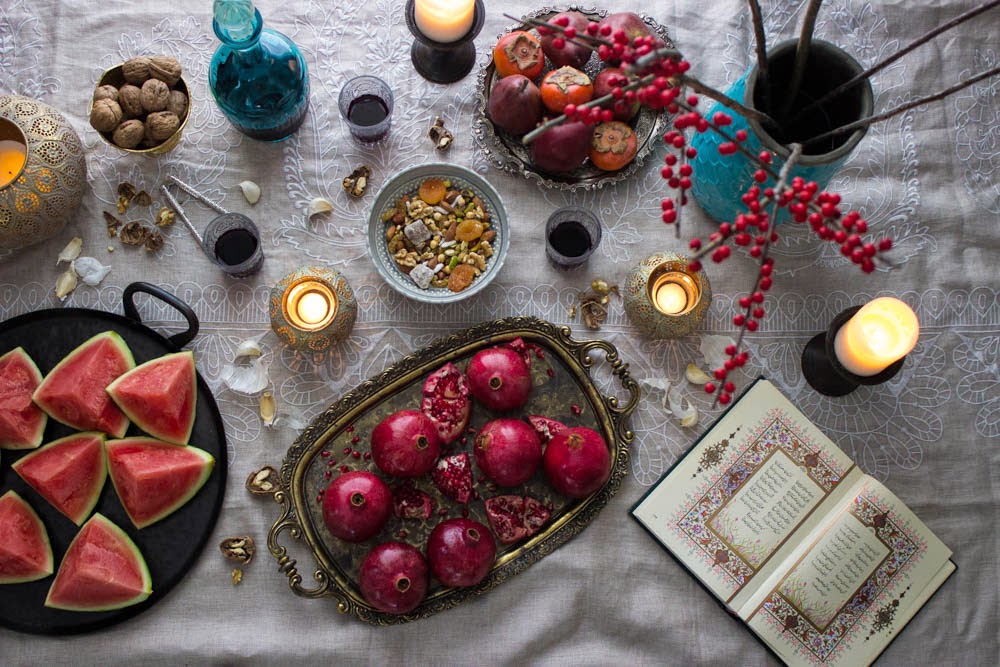
Shab-e-Yalda, also called Yalda Night, is a festival celebrated in Iran, Kurdistan, Azerbaijan, Uzbekistan, Tajikistan and Turkmenistan on the winter solstice. It marks the longest night of the year and symbolizes the triumph of light over darkness as the days begin to grow longer. Families gather to share meals, recite poetry, and enjoy fruits like pomegranates and watermelons, which are symbols of health and prosperity. The celebration is a time for reflection, storytelling and togetherness, honouring both cultural heritage and the changing of the seasons.
Christmas: December 25

December 25 marks Christmas Day, a global celebration of the birth of Jesus Christ observed by both Christians and non-Christians as a religious and cultural holiday. While the Bible does not record the exact date of Jesus’s birth, the date aligns with the traditional winter solstice on the Roman calendar. According to the New Testament, Mary, pregnant through immaculate conception, and her husband Joseph travelled from Nazareth to Bethlehem for a census, finding no room at the inn and welcoming Jesus in a stable. Angels proclaimed His birth to shepherds who then spread the news of the promised Saviour.
Beyond its religious significance, Christmas is widely celebrated as a cultural holiday with many traditions. People exchange gifts, send cards, attend parties, sing carols and enjoy meals with family and friends. A figure known as Santa Claus is closely associated with gift-giving while the holiday overall is a time for reflection, generosity and togetherness across communities around the world.
Kwanzaa: December 25 to January 1
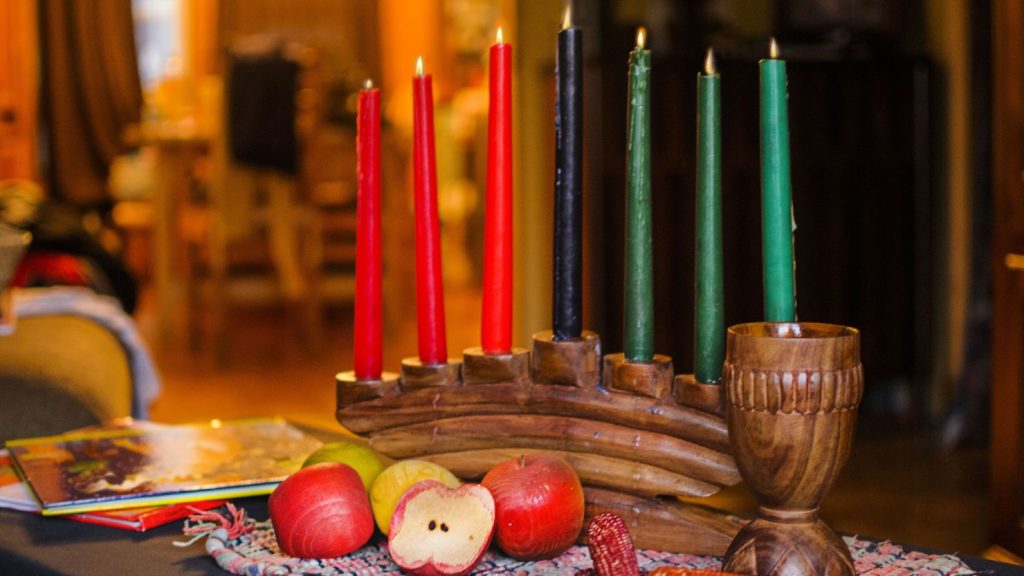
Kwanzaa is a yearly holiday celebrated from December 26 through January 1 to honour African heritage and culture. Each of the seven days focuses on one of the Nguzo Saba, the Seven Principles including Unity, Self-Determination, Collective Work and Responsibility, Cooperative Economics, Purpose, Creativity and Faith. Families and communities celebrate with music, storytelling, drumming, dance and traditional foods while symbolic items such as the kinara candleholder, the mkeka mat and the mishumaa saba seven candles are displayed to represent the principles and cultural heritage. The holiday culminates with a communal feast known as Karamu, a time for sharing food, reflection and coming together in celebration of community, family and cultural pride.
Check out more Grandview Kids articles
- Celebrating Ahaana: Finding sound, strength and community on Cochlear Implant Day
- Navigating the intersection of disability and race as a caregiver: Honouring Black History Month
- Embracing hope through every challenge: Brock’s journey
- Jack’s resilience shines through every step: Rare Disease Day
- February: Dates of Significance
